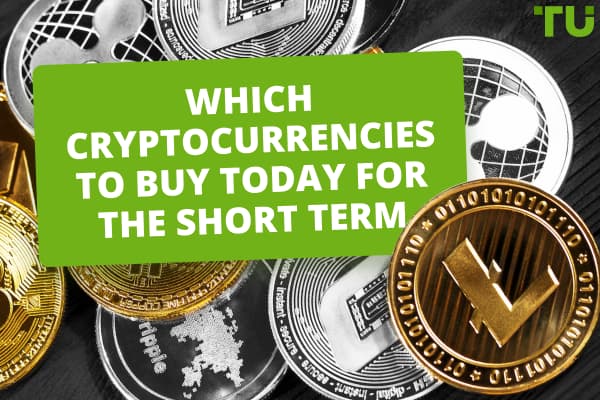Bitcoin CFD and Futures Trading

Best brokers for trading Bitcoin CFDs and futures is Exness
Top 4 brokers for trading Bitcoin CFDs and futures:
-
Exness - Low-cost Bitcoin CFD trading solutions
-
IC Markets - Comprehensive Bitcoin CFD trading
-
Tickmill - Most trusted for CFD trading
-
Admiral Markets - Good selection of crypto CFDs
The surge in popularity and market dominance of Bitcoin has spurred a parallel growth in the demand for reliable and efficient trading platforms. With the rise of Contracts for Difference (CFD) and futures trading, investors can now participate in the dynamic world of Bitcoin without directly owning the cryptocurrency. As a result, numerous brokers have entered the market, each vying for attention with their unique features and offerings.
We will explore the best brokers for Bitcoin CFD and futures trading, providing readers with valuable insights to navigate the complex landscape of digital currency investments in this article. By analysing factors such as platform features, security measures, fees, customer support, and regulatory compliance, TU experts aim to equip traders with the knowledge necessary to make informed investment decisions and maximise their potential returns.
What are Bitcoin futures?
Investors can place bets on the future value of the currency through financial instruments known as "Bitcoin futures". These derivative instruments enable traders to take positions on the anticipated movement of Bitcoin's price without actually owning it. Here are some key features of Bitcoin futures that make them attractive to investors:
-
1
Bitcoin futures allow investors to make speculative bets on the future price of Bitcoin, regardless of whether they believe it will rise or fall
-
2
Bitcoin futures often offer leverage, enabling traders to control larger positions with a smaller initial investment, potentially amplifying gains (but also increasing the risk of losses)
-
3
They are traded on regulated exchanges, providing transparency and price discovery, reflecting market sentiment and expectations
-
4
Risk Management Bitcoin futures enable investors to hedge their Bitcoin holdings by taking opposite positions, reducing overall risk in their portfolio
What are Bitcoin CFDs?
Without actually owning any Bitcoin, traders can forecast changes in its price with the aid of financial instruments known as Bitcoin CFDs. CFDs are derivative products that track changes in the value of an underlying asset; in this case, that underlying asset is Bitcoin. Here are the main features of Bitcoin CFDs:
-
1
Bitcoin CFDs allow traders to profit from both rising and falling Bitcoin prices by buying or selling
-
2
Traders can speculate on Bitcoin's price movements without needing to invest in the actual cryptocurrency
-
3
Bitcoin CFDs often offer leverage, enabling traders to control larger positions with a smaller amount of capital, potentially magnifying profits (and losses)
-
4
CFDs offer risk management tools like stop-loss and take-profit orders to help limit losses and secure profits
-
5
Bitcoin CFDs can be traded on user-friendly online platforms provided by reputable brokers, offering real-time data and analysis tools for informed decision-making
List of the 4 Best Bitcoin CFD Brokers
Discovering the right broker is essential for successful Bitcoin CFD trading, and to help you in your search, here is a list of the 5 best CFD brokers, according to Traders Union experts.
Exness
With a focus on providing a transparent trading environment, Exness Broker allows traders to engage in Bitcoin CFD trading with competitive leverage options and tight spreads, ensuring cost-effective and commission-free trading on Bitcoin CFDs. Exness, a trusted broker that operates globally, offers traders reliable customer support and efficient trade execution.
Exness is accredited and governed by reputable organisations like the UK's Financial Conduct Authority (FCA) and the Cyprus Securities and Exchange Commission (CySEC). Different account types are available to cater to traders' varying needs, and with a low minimum deposit requirement of $1, it becomes accessible to traders at different budget levels.
IC Markets
Traders can benefit from IC Markets' competitive trading conditions, including Bitcoin CFD trading with high-leverage options and tight spreads. The broker’s low trade commissions guarantee clients cost-effective trading. Meanwhile, the minimum deposit requirement to open an account with IC Markets starts at $200, accommodating various trading budgets. Traders can seamlessly execute their Bitcoin CFD trades using a variety of trading platforms, such as MetaTrader 4
and 5.
The Australian Securities and Investments Commission (ASIC) is in charge of regulating IC Markets, which is renowned for its strict regulatory requirements and transparency. With a commitment to customer satisfaction, fast trade execution, and deep liquidity, IC Markets is a reliable choice for traders seeking exposure to Bitcoin CFDs.
Tickmill
With tight spreads, flexible leverage, and commission-free trading, Tickmill provides a cost-effective solution for speculating on Bitcoin's price movements. Traders can take advantage of Tickmill's competitive trading conditions, including Bitcoin CFD trading. With a comprehensive research and analysis section, Tickmill equips traders with valuable market insights and educational resources to enhance their trading strategies.
As a trusted and regulated broker, Tickmill operates under the oversight of reputable authorities such as the Financial Conduct Authority (FCA) and the Cyprus Securities and Exchange Commission (CySEC). Tickmill also offers a range of account types to cater to different trading needs, and the minimum deposit requirement starts as low as $100. The broker emphasises customer satisfaction by providing responsive customer support and a transparent trading environment.
Admiral Markets
Admirals Markets has established a solid reputation in the industry, offering a reliable option for Bitcoin CFD trading. The broker offers commission-free trading on Bitcoin CFDs, ensuring transparent pricing for traders. The Financial Conduct Authority (FCA) and the Australian Securities and Investments Commission (ASIC) oversee Admiral Markets, a reputable broker. Traders can engage in Bitcoin CFD trading with competitive spreads and high-leverage options. The minimum deposit requirement varies depending on the account type, starting at $200, allowing flexibility for traders with different budget levels.
The broker provides a range of trading platforms to suit individual preferences, ensuring a seamless trading experience. With a commitment to technological innovation and user-friendly interfaces, Admiral Markets prioritises client satisfaction. In order to stay informed and make wise trading decisions, traders can also profit from a wide variety of educational resources and market analysis tools.
Bitcoin CFDs vs Futures: Key Differences Explained
| Bitcoin Futures | Bitcoin CFDs | |
|---|---|---|
Risk Level |
Assets for copy trading Low |
Regulator Medium |
Usual Leverage |
Assets for copy trading 50:1 |
Regulator 50:1 |
Fees |
Assets for copy trading Medium |
Regulator High |
Is Bitcoin CFD and Futures Trading Legal?
The legality of Bitcoin CFD and futures trading varies depending on the country due to the decentralised nature of cryptocurrencies. Different governments worldwide have taken varying approaches to regulating and overseeing these digital assets. Some countries have embraced cryptocurrencies and established clear regulations, while others have implemented restrictions or outright bans. The main purpose of these regulatory frameworks is to ensure transparency, protect users, and prevent illegal activities. Traders should conduct thorough research and seek legal advice to understand the specific legality and compliance requirements in their jurisdiction
Are Bitcoin futures and CFDs risky?
Yes, Bitcoin futures and CFDs carry inherent risks that traders should be aware of. Bitcoin futures and CFDs often offer high leverage, which can amplify both potential profits and losses. Also traders should take into account Bitcoin's price is extremely prone to volatility, which causes large price swings that can bring about significant gains or losses. The cryptocurrency market is still evolving, and factors such as regulatory changes, technological advancements, and market sentiment can introduce uncertainty and impact Bitcoin's value.
FAQs
What is Bitcoin CFD trading?
Bitcoin CFD trading involves speculating on the price movements of Bitcoin through Contracts for Difference without owning it.
What are BTC CFDs?
Without owning the underlying asset, traders can speculate on the price changes of Bitcoin using financial instruments known as BTC CFDs (Bitcoin CFDs). A contract that traders enter into that mimics the changes in Bitcoin's price.
Is CFD trading the same as futures trading?
Although both CFD trading and futures trading are derivative forms of trading, they differ from one another. Trading CFDs allows for speculation on a range of assets, including cryptocurrencies, without having to own the asset directly. Contracts involving futures trading bind parties to buy or sell the underlying asset at a set price and at a later date.
What is the difference between Bitcoin futures and CFDs?
While Bitcoin futures involve specific contract terms and obligations for physical delivery or settlement, Bitcoin CFDs provide more flexibility in terms of entry/exit points, leverage options, and profiting from price changes.
Methodology for compiling our ratings of crypto exchanges
Traders Union applies a rigorous methodology to evaluate crypto exchanges using over 100 quantitative and qualitative criteria. Multiple parameters are given individual scores that feed into an overall rating.
Key aspects of the assessment include:
User reviews. Client reviews and feedback are analyzed to determine customer satisfaction levels. Reviews are fact-checked and verified.
Trading instruments. Exchanges are evaluated on the range of assets offered, as well as the breadth and depth of available markets.
Fees and commissions. All trading fees and commissions are analyzed comprehensively to determine overall costs for clients.
Trading platforms. Exchanges are assessed based on the variety, quality, and features of platforms offered to clients.
Extra services. Unique value propositions and useful features that provide traders with more options for yield generation.
Other factors like brand popularity, client support, and educational resources are also evaluated.
Glossary for novice traders
-
1
Broker
A broker is a legal entity or individual that performs as an intermediary when making trades in the financial markets. Private investors cannot trade without a broker, since only brokers can execute trades on the exchanges.
-
2
Bitcoin
Bitcoin is a decentralized digital cryptocurrency that was created in 2009 by an anonymous individual or group using the pseudonym Satoshi Nakamoto. It operates on a technology called blockchain, which is a distributed ledger that records all transactions across a network of computers.
-
3
CFD
CFD is a contract between an investor/trader and seller that demonstrates that the trader will need to pay the price difference between the current value of the asset and its value at the time of contract to the seller.
-
4
Trading
Trading involves the act of buying and selling financial assets like stocks, currencies, or commodities with the intention of profiting from market price fluctuations. Traders employ various strategies, analysis techniques, and risk management practices to make informed decisions and optimize their chances of success in the financial markets.
-
5
Leverage
Forex leverage is a tool enabling traders to control larger positions with a relatively small amount of capital, amplifying potential profits and losses based on the chosen leverage ratio.
Team that worked on the article
Johnathan M. is a U.S.-based writer and investor, a contributor to the Traders Union website. His two primary areas of expertise include finance and investing (specifically, forex and commodity trading) and religion/spirituality/meditation.
His experience includes writing articles for Investopedia.com, being the head writer for the Steve Pomeranz Show, a personal finance radio program on NPR. Johnathan is also an active currency (forex) trader, with over 20 years of investing experience.
Dr. BJ Johnson is a PhD in English Language and an editor with over 15 years of experience. He earned his degree in English Language in the U.S and the UK. In 2020, Dr. Johnson joined the Traders Union team. Since then, he has created over 100 exclusive articles and edited over 300 articles of other authors.
Mirjan Hipolito is a journalist and news editor at Traders Union. She is an expert crypto writer with five years of experience in the financial markets. Her specialties are daily market news, price predictions, and Initial Coin Offerings (ICO).













